While the United Kingdom and other democratic nations are holding their officials accountable for their handling of the COVID-19 pandemic, the Islamic Republic of Iran continues to deflect blame for its delayed and restricted vaccine imports.
The Iranian authorities’ negligence, which resulted in the deaths of hundreds of thousands of Iranians, can partially be attributed to political reasons.
President Ebrahim Raisi claimed in June 2021 that 700 families were mourning the loss of a loved one each day due to the lack of access to vaccines.
He blamed mismanagement by the previous government and US sanctions for a delay in vaccine imports.
Former Foreign Minister Mohammad Javad Zarif disputed Raisi's claims.
He said that the Execution of Imam Khomeini's Order, which is under direct control of the Islamic Republic’s supreme leader, prevented the previous government from importing anti-COVID vaccines, claiming that such vaccines could be produced domestically.
Former President Hassan Rouhani confirmed that his administration had taken steps to import vaccines.
These allegations raise the questions as to which individuals or entities are responsible for the deaths of over 300,000 Iranians.
However, the prevailing culture of impunity in Iran means that those responsible are unlikely to face consequences for their actions.
Despite the World Health Organization's (WHO) recommendations for quarantine measures, the Islamic Republic failed to implement effective containment strategies to curb the spread of COVID-19.
This negligence, coupled with the propagation of superstitious beliefs and conspiracy theories by the country's leadership, contributed to the devastating impact of the pandemic.
IranWire reported that the lack of comprehensive quarantine measures was caused by Supreme Leader Ali Khamenei's opposition.
Despite the government's plans to impose quarantine requirements and restrict intercity travel during an unofficial shutdown in March-April 2020, these measures were thwarted by Khamenei.
His aversion to quarantine measures was reportedly rooted in superstitious beliefs and fear they would antagonize religious hardliners.
The supreme leader reportedly asserted that closing the country was "against the will of Imam Zaman," a revered figure in Shia Islam.
Khamenei's speeches about COVID-19 also showed his penchant for conspiracy theories.
In a sermon on March 22, 2020, he attributed the origin of the pandemic to the "enemies, devils and genies" and suggested that the United States specifically targeted Iran with the virus.
In addition, Khamenei has accused the media of spreading "fake news" about the pandemic.
The Islamic Revolutionary Guard Corps (IRGC) too has been complicit in spreading misinformation about COVID-19, with its commander-in-chief Hussein Salami declaring in March 2020 that the country was facing a "biological war."
On the eve of Khamenei's decree against vaccine imports, Gholamreza Jalali, the head of the Passive Defense Organization also claimed that the coronavirus displayed the characteristics of a biological weapon.
Saeed Namaki, the Minister of Health during Rouhani's administration, repeatedly claimed that the Islamic Republic had "effectively controlled the coronavirus outbreak."
Namaki's actions and statements gained clarity when his links with the pharmaceutical import company Oktarco was exposed.
Oktarco was Iran’s biggest importer of drugs in the 2010s and received foreign currencies at discounted government rates.
Mostaan 110 is an Iranian device unveiled on April 15, 2021, in the presence of the IRGC's commander-in-chief, who claimed that it was capable of remotely detecting COVID-19.
The news triggered a flurry of domestic and international reactions that prompted the Ministry of Health to announce that the device had not been officially approved.
Despite that, IRGC spokesman Ramazan Sharif called the device "a significant achievement.”
It's plausible that if Khamenei had not issued a blanket ban on the importation of US and UK anti-coronavirus vaccines, the death toll from the pandemic would have been significantly lower.
He also expressed reservations about French vaccines.
The implementation of the supreme leader's decree resulted in a staggering 40,000 deaths over a span of almost 200 days.
It was only after this period of inaction that Khamenei issued a video message calling for a comprehensive vaccination program "by any means possible."
In this message, published on August 11, 2021, he described the fight against COVID-19 as the country's “top priority."
During these 200 days, the authorities bought Chinese vaccines, pre-purchased vaccines from Russia, Cuba and China, and pushed for the production of domestic vaccines.
Khamenei's ban on vaccine imports prompted the Execution of Imam Khomeini's Order to announce its intent to produce a "domestic" vaccine.
According to the newspaper Shargh, this institution received $1 billion from the "State Credit Center" for the production of 120 million doses of the Barakat vaccine and promised to produce "50 million doses" by September 2021.
In the end, it delivered only 4,200,000 doses to the Ministry of Health.
At that time, the medical newspaper Sepid wrote that a dose of the Iranian vaccine cost nine times those of foreign vaccines.
Mohammed Mokhber, who headed the headquarters of the Execution of Imam Khomeini's Order, claimed that Iran was among the six vaccine-exporting countries.
Amid such claims, Karim Hemti, the head of Iran's Red Crescent Society, announced that "180 million doses of vaccine are needed for the complete vaccination of society and the country's exit from the coronavirus crisis."
Iran produced Russia’s Sputnik vaccine.
But in September 2021, when many countries had started injecting a second dose of vaccine to their populations, Mohammad Kariminia, the deputy of Iran's biological defense headquarters, told the Javan newspaper that all the Sputnik vaccines produced in Iran would be delivered to Russia.
That was denied by the Ministry of Health, but the number of injections of the vaccine in Iran was so low that it was not included in statistics.
In the meantime, there was news about the joint production of the Pastocovac vaccine by Iran and Cuba and the Spikogen vaccine by Iran and Australia, but there was no news about their large-scale production and their use in Iran.
Until the official end of the pandemic, Iran has not published the results of tests and trials regarding anti-coronavirus vaccines.
No information has been published about the Barakat vaccine, which has been called "the first corona vaccine produced in Iran," except for a preliminary article that did not appear in any scientific journal.
Fakhra, a vaccine produced by the Ministry of Defense, has not been approved, and the IRGC's Nora vaccine has not reached the third stage of clinical trials.
After the coronavirus pandemic officially ended in Iran, Khamenei did not apologize for his irrational comments and decisions, nor did the IRGC commanders and the head of the headquarters of the Execution of Imam Khomeini's Order for wasting the financial resources of the country.
visit the accountability section
In this section of Iran Wire, you can contact the officials and launch your campaign for various problems




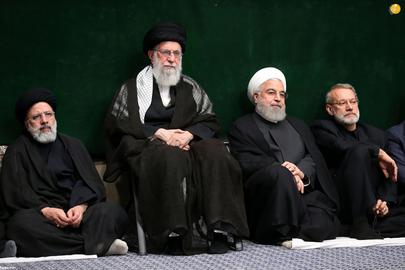
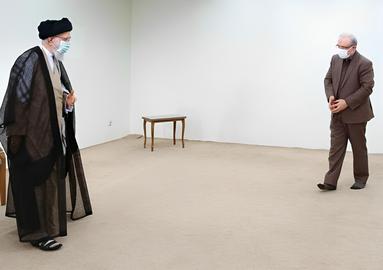


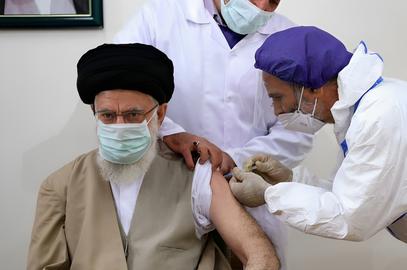
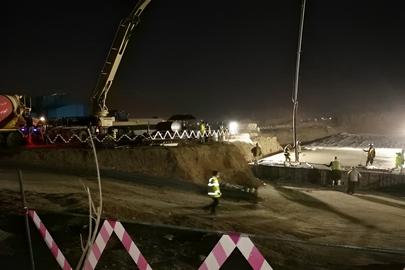
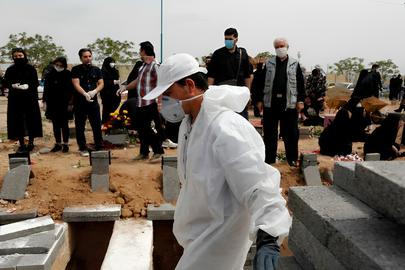




















comments